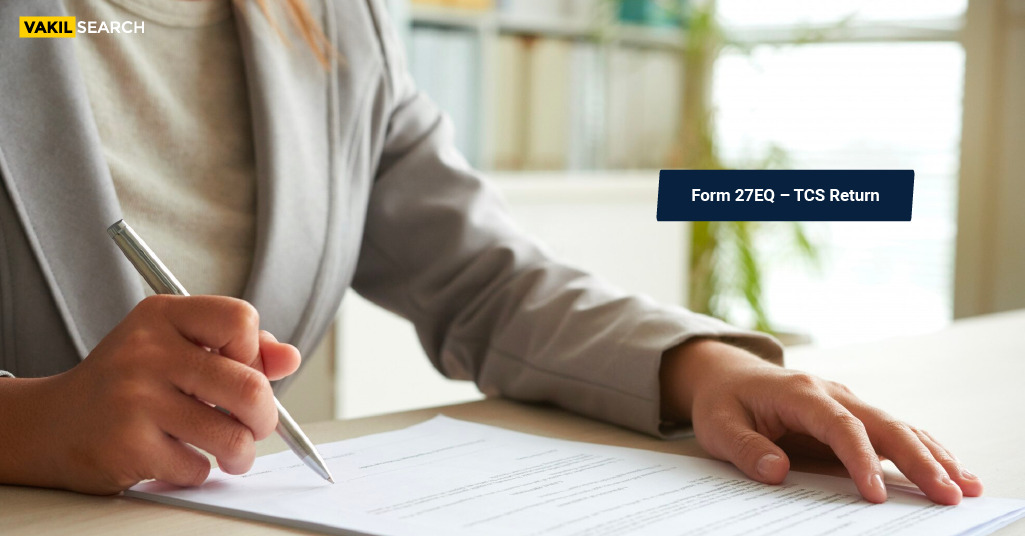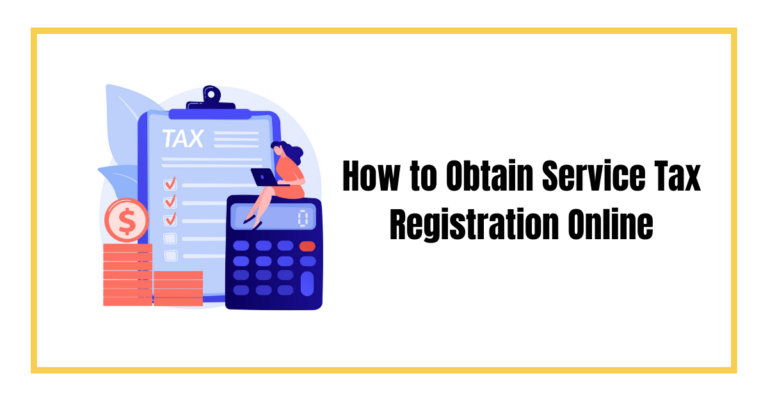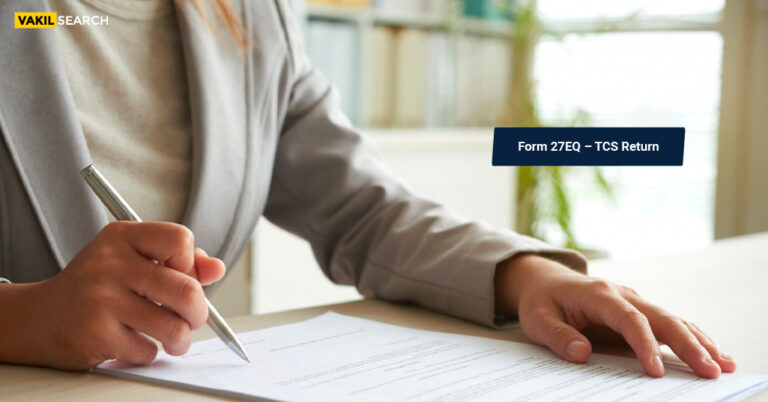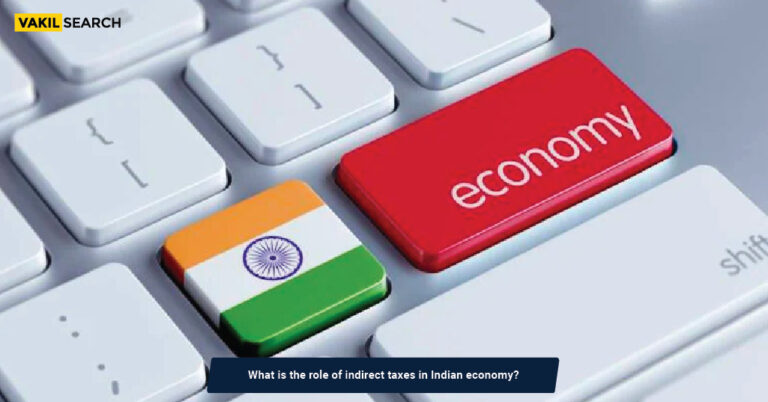File Form 27EQ quarterly to report TCS on goods sold in India. Stay compliant, avoid penalties.
Form 27EQ is a type of TCS (Tax Collected at Source) return in India. TCS is a tax collected by the seller from the buyer at the time of sale of specified goods, and it is deposited with the government. The person collecting TCS is required to file a TCS return using Form 27EQ to report the details of tax collected.
TCS Return Overview:
Form 27EQ is the statement cum challan for depositing tax collected at source. The form captures details such as:
- Collector’s Details: Information about the person or entity collecting TCS.
- PAN of Collector: Permanent Account Number of the collector.
- PAN of Deductee: Permanent Account Number of the buyer.
- Details of TCS Transactions: Specifics of the transactions on which TCS has been collected.
- TCS Amount: The amount of TCS collected.
- Payment Details: Challan details for the deposit of TCS with the bank.
Due Date for Form 27EQ
- 31st July for the quarter ending 30th June
- 31st October for the quarter ending 30th September
- 31st January for the quarter ending 31st December
- 31st May for the quarter ending 31st March
Why Do You Need Form 27EQ?
- To report and remit Tax Collected at Source (TCS) on specific goods and services.
- To ensure compliance with Section 206C of the Income Tax Act 1961.
- To provide the government with accurate information on TCS collections.
Key Reasons for Filing:
- Compliance with TCS Provisions:
- TCS is a mechanism where a seller collects tax from the buyer at the time of sale and remits it to the government.
- Form 27EQ is mandatory for sellers who have collected TCS to declare and deposit the tax.
- Tracking TCS Collections:
- The form helps the government track TCS collections effectively.
- It provides details on the amount of TCS collected, the nature of goods or services, and the parties involved.
- Preventing Tax Evasion:
- Mandated filing of Form 27EQ discourages tax evasion by ensuring that TCS is collected and remitted correctly.
- It helps maintain transparency in tax transactions.
- Claiming Credit for TCS:
- Buyers who have paid TCS can claim credit for it while filing their income tax returns.
- Form 27EQ serves as proof of TCS payment, enabling buyers to claim the credit.
- Avoiding Penalties:
- Failure to file Form 27EQ by the due date can attract penalties and interest charges.
- Timely filing is crucial to avoid such consequences.
Who Needs to File:
- Corporates
- Government entities
- Other sellers who have collected TCS under Section 206C
Filing Frequency:
- Quarterly (every three months)
Features of Form 27EQ
Here are the key features of Form 27EQ:
- Purpose:
- Reporting and remittance of Tax Collected at Source (TCS) on specific goods and services.
- Compliance with Section 206C of the Income Tax Act, 1961.
- Filing Frequency:
- Quarterly (every three months)
- Due Dates:
- 31st July for quarter ending 30th June
- 31st October for quarter ending 30th September
- 31st January for quarter ending 31st December
- 31st May for quarter ending 31st March
- Eligibility:
- Corporates
- Government entities
- Other sellers who have collected TCS under Section 206C
- Information Required:
- TAN (Tax Deduction and Collection Account Number)
- PAN (Permanent Account Number) (except for government deductors)
- Financial year and assessment year
- Details of TCS collected:
- Collection code
- Amount of TCS
- Education cess
- Surcharge
- Interest charged (if applicable)
- Details of payment made to the government:
- BSR code
- Date of deposit
- Challan serial number or cheque/DD details
- Filing Method:
- Online filing through the TRACES portal of the Income Tax Department
- Key Sections:
- Section 1: Basic information (TAN, PAN, financial year, assessment year)
- Section 2: Details of deductor/collector
- Section 3: Declaration
- Section 4: Details of tax payment
- Section 5: Annexure (details of tax collected and paid)
- Significance:
- Ensures compliance with TCS provisions
- Enables tracking of TCS collections
- Prevents tax evasion
- Facilitates credit claiming for buyers
- Avoids penalties for non-filing
Submission of Form 27EQ
- Registration on TRACES Portal:
- If you haven’t already, register on the TRACES portal (https://www.tdscpc.gov.in/app/login.xhtml) using your TAN and PAN (except for government deductors).
- During registration, you’ll receive a User ID and password for accessing the portal.
- Preparation of Form:
- Gather all necessary information, including:
- TAN
- PAN (except for government deductors)
- Financial year and assessment year
- Details of TCS collected (collection code, amount, cess, surcharge, interest)
- Details of tax payment (BSR code, date of deposit, challan/cheque details)
- Download Form 27EQ from the TRACES portal or the Income Tax Department website.
- Fill in the form accurately and completely, either offline or using the online utility provided on TRACES.
- Validation of Form:
- Use the File Validation Utility (FVU) available on the TRACES portal to validate the form and ensure there are no errors.
- If errors are found, correct them and re-validate the form.
- Digital Signature:
- Obtain a valid Digital Signature Certificate (DSC) from a certifying authority.
- Use the DSC to digitally sign the validated Form 27EQ.
- Online Submission:
- Log in to the TRACES portal using your User ID and password.
- Go to the “File Returns” section and select “Form 27EQ.”
- Upload the digitally signed form and submit it.
- Upon successful submission, you’ll receive a confirmation message and a File Reference Number (FRN).
- Payment of TCS:
- If you haven’t already paid the TCS collected, make the payment to the government through designated banks using a challan or electronic payment methods.
- Keep the challan or payment receipt for records.
Contents of Form 27EQ:
The contents of Form 27EQ include:
- Collector’s Details:
- Name and Address of the Collector
- TAN (Tax Deduction and Collection Account Number) of the Collector
- PAN of Deductee:
- Permanent Account Number of the buyer on whom TCS is collected
- Details of TCS Transactions:
- Nature of Payment
- Transaction Amount
- TCS Rate
- TCS Amount
- Challan Details:
- BSR Code (Bank and Branch Code)
- Challan Serial Number
- Date of Deposit
- Amount Deposited
- Others:
- Assessment Year
- Quarter for which the return is filed
Conclusion
In conclusion, Form 27EQ is a crucial document for individuals or entities in India who collect Tax Collected at Source (TCS). It ensures compliance with tax regulations, provides transparency in the taxation system, and serves as documentation for TCS transactions. The form is filed quarterly, with due dates as follows:
- For the quarter ending on June 30th, the due date is July 31st.
- For the quarter ending on September 30th, the due date is October 31st.
- For the quarter ending on December 31st, the due date is January 31st.
- For the quarter ending on March 31st, the due date is May 31st.
Accurate and timely submission of Form 27EQ is essential to avoid penalties and stay compliant with tax laws. It involves providing details of the collector, deductee, TCS transactions, and challan information. The form can be submitted online through the Income Tax Department’s portal. Keeping abreast of any updates to tax regulations and seeking professional advice ensures adherence to the latest guidelines.
FAQ
When is the deadline for filing Form 27EQ, and what are the consequences of late filing?
The deadline for filing Form 27EQ depends on the quarter during which you collected TCS:
- Quarter ending June 30th: Due July 31st
- Quarter ending September 30th: Due October 31st
- Quarter ending December 31st: Due January 31st
- Quarter ending March 31st: Due May 31st.Late filing attracts penalties and interest charges. The current penalty is Rs.200 per day for the initial delay and Rs.5 per day for subsequent delays. The interest on unpaid TCS is as per prevailing rates.
Can Form 27EQ be filed electronically, and what is the process for online submission?
Yes, Form 27EQ can be filed electronically through the TRACES portal Here's the process:1.Register on TRACES: Use your TAN and PAN (except for government deductors) to register and obtain a User ID and password.
2.Prepare the Form: Gather necessary information like TAN, PAN, financial year, TCS details, and payment details. Download and fill the form, either offline or using the online utility.
3.Validate the Form: Use the FVU on the TRACES portal to check for errors and correct them if needed.
4.Sign and Submit: Obtain a valid DSC and digitally sign the form. Log in to TRACES, choose File Returns and select Form 27EQ, upload the signed form, and submit it. You'll receive a confirmation message and File Reference Number (FRN).
What information and details are required to be filled in Form 27EQ for accurate TCS reporting?
You need to include:
Are there any exemptions or thresholds for certain transactions in relation to TCS and Form 27EQ?
Yes, some transactions are exempt from TCS, and thresholds apply for others. For example, TCS isn't applicable on purchases below Rs.10 lakhs for cars, Rs.50 lakhs for immovable property, and Rs.2 lakhs for purchase of timber. Refer to the Income Tax website or consult a tax professional for specific exemptions and thresholds.
What is the penalty for non-compliance or incorrect filing of Form 27EQ?
Penalties for non-compliance or incorrect filing can include:
Can a taxpayer make corrections or amendments to a filed Form 27EQ and what is the process for doing so?
Yes, corrections can be made by filing a revised Form 27EQ within the filing deadline for the relevant quarter. You need to clearly mention it's a revision and provide details of the original submission. Remember, late filing penalties still apply to the revised form.
Where can businesses and individuals find guidance or support for understanding and filing Form 27EQ for TCS returns?
You can access resources through:
Also Read










